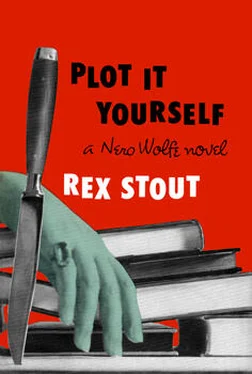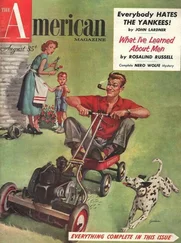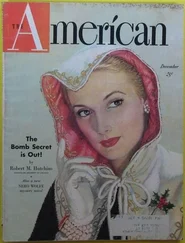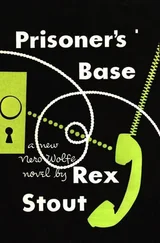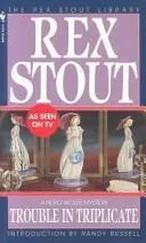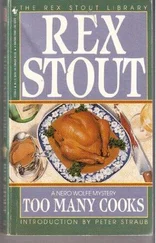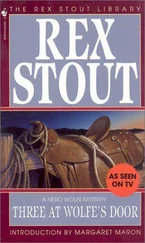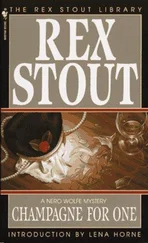“I told you. Private and personal.”
“When did you learn Jacobs had been killed? And how? He was identified only an hour ago.”
“Just now. From you.” I had joined him at the door. “Let’s take a short cut, Sergeant. The long way would be for you to bark at me a while, getting upset because I won’t unload, and then you would take me to Homicide West, only a short walk, which you have no right to do, so I would get upset, and then Inspector Cramer would go to see Mr. Wolfe, and so on. The short way would be for me to phone Mr. Wolfe and get his permission to tell you why I came to see Jacobs, which he would probably give because there’s no reason why he shouldn’t and it may be connected with his death. You know damn well that without his permission I tell you nothing.”
“You admit it’s connected.”
“Nuts. You’re not the DA and we’re not in court. Of course Mr. Wolfe will want some details — when and how he was killed, and by whom, if you know.”
Purley opened his mouth and shut it again. When I have facts he needs, he would like to force them out by jumping up and down on my belly, but for that I would have to be lying on my back.
“With me listening,” he said.
“Sure, why not?”
“Okay. The body was found at two o’clock this afternoon behind a bush in Van Cortlandt Park. It had been dragged across the grass from the edge of the road, so it was probably taken there in a car. There was one stab wound in the chest with a broad blade. No weapon found. The ME says between nine o’clock and midnight. Probably nothing taken. Eighteen dollars in his wallet. You can call Wolfe on the phone in here.”
“Any leads?”
“No.”
“When or where he went last night, or who with?”
“No. I was asking his wife when you came. She says she doesn’t know. The phone’s in his room, where he worked. Where he wrote. He wrote stories.”
“I know he did. What time did he go out?”
“Around eight o’clock. If he had an appointment he made it on the phone and she didn’t know anything about it. So she says. I just got started with her. I brought her here from the morgue after she identified the body. She says he told her he was going to see somebody and might be late, and that was all. If Wolfe wants to know what he had in his stomach he’ll have to wait until—”
“Don’t be flippant. Where’s the phone?”
We went inside and he shut the door and led the way down the narrow hall to a door on the left. It was a small room with one window, a table with a typewriter, shelves with books and magazines, and a row of drawers. There were two chairs, and on one of them was Mrs. Jacobs. I said she wasn’t a crone when I saw her five days before, but she was now. I wouldn’t have known her. As we entered her eyes came to us. She focused on me, staring, and blurted, “It was you!”
“What?” Purley asked her. “Do you know this man?”
“I’ve seen him.” She was on her feet. “He was here last week. His name’s Goodwin. My husband saw him just for a minute, and after he left Simon told me if he ever came again to shut the door on him.” She was trembling all over. “I knew from the way—”
“Take it easy, Mrs. Jacobs.” Purley had her arm. “I know this Goodwin. I’ll handle him, don’t worry. You can tell me about it later.” He was easing her out. “You go and lie down a while. Drink something. Drink some hot tea....”
He got her to the hall. In a moment he returned, shut the door, and turned. “So you’ve been here before.”
“Sure. With Mr. Wolfe’s permission I’ll confess everything.”
“There’s the phone.”
I sat at the table and dialed, and after five rings had Fritz, who always answers when Wolfe is up with the orchids. I told him to buzz the plant rooms, and after a wait Wolfe’s voice came. “Yes?”
“I have to report another complication. I’m in Simon Jacobs’ apartment, the room he wrote stories in. Sergeant Stebbins is with me. He is investigating the murder of Simon Jacobs, whose body was found at two o’clock this afternoon behind a bush in Van Cortlandt Park. Stabbed. Between nine and twelve last night. Body taken there in a car. No leads. No anything.”
“Confound it!”
“Yes, sir. Stebbins was here when I arrived, and naturally he is curious. Are there any details I should save?”
Silence. Ten seconds, then: “No. There’s nothing worth saving.”
“Right. Tell Fritz to save some of that shashlik for me. I’ll be home when I get there.” I hung up and told Purley, “He says there’s nothing worth saving. Shall I just tell it or would you rather grill me?”
“Try telling it,” he said, and got the chair the widow had vacated, sat, and got out his notebook.
Thomas Dexter of Title House squared his shoulders and set his long, bony jaw. “I don’t care how you look at it, Mr. Harvey,” he said. “I know how I look at it. I’m not condemning Mr. Wolfe or the members of this committee, or even myself, but I have a feeling of guilt, I regard myself as guilty of incitation to murder. Unwittingly, yes, but what are wits for? I should have considered the possible consequences of signing that agreement not to prosecute Simon Jacobs.”
It was noon the next day, Wednesday. If you are fed up with committee meetings, so was Wolfe and so was I, but that’s one disadvantage of having a committee for a client. And it was no longer merely a Joint Committee on Plagiarism. Within two hours after I had supplied the details to Stebbins they had all been visited by city employees. Knapp had been interrupted in the middle of a bridge game. Oshin had been found at dinner at Sardi’s. Imhof and Amy Wynn had been called from a conference with three other executives of Victory Press. Dexter and Harvey and Cora Ballard had received the callers at home. Harvey had elicited these details from them so Wolfe would realize the gravity of the situation.
Having come at eleven o’clock, they had been at it for an hour, and there had been raised voices and heated words, with no unanimity on anything. Take the question, did they accept the assumption that Jacobs had been killed to keep him from squealing? Knapp and Harvey said no, he might have been killed from some quite different motive; it might have been merely coincidence. Dexter and Oshin said yes, that they couldn’t get from under a responsibility by laying it to coincidence. Imhof and Amy Wynn and Cora Ballard were on the fence. Wolfe ended that argument by saying that it didn’t matter whether they accepted the assumption or not; the police had made it, and so had he, as a working hypothesis.
Of course that led to a hotter question. If Jacobs had been killed to keep him from telling who had written “What’s Mine Is Yours” and got him to make his claim on Richard Echols, the murderer must have known about the plan to pry Jacobs open. Who had told him? That was what the cops had been after when they called on the members of the committee, and that was what Wolfe wanted, but look what they got:
Amy Wynn had told two friends, a man and a woman, with whom she had dined Monday evening. Cora Ballard had told the president and vice-president of NAAD and two members of its council. Mortimer Oshin had told his lawyer, his agent, his producer, and his wife. Gerald Knapp had told his lawyer and two members of his firm. Reuben Imhof had told three of his associates at Victory Press. Philip Harvey had told no one, he said. Thomas Dexter had told his secretary, his lawyer, and six members of the board of directors of Title House. So, counting the committee members and Wolfe and me, thirty-three people had known about it. Supposing they had passed it on to others as an interesting inside item, averaging one apiece, which wasn’t hard to suppose, that would make a total of sixty-six. And supposing... You do it.
Читать дальше
